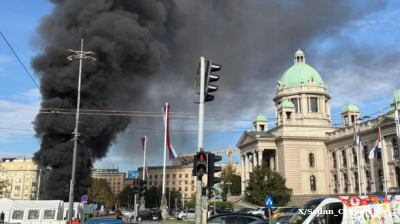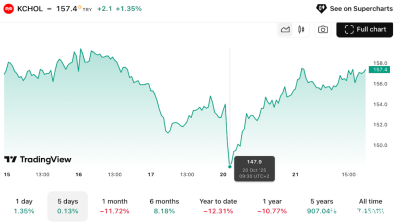The risk of Syria becoming the stage for a direct conflict between Turkey and Israel must be seriously addressed, an Israeli government commission has warned.
Turkey could even come to pose a greater threat to Israel via its presence in Syria than Iran did through its alliance with the Bashar al-Assad regime that fell a month ago, advised the Committee for the Evaluation of the Defence Establishment Budget and the Balance of Power, commonly referred to as the Nagel Commission as it is chaired by former Israeli National Security Council head Yaakov Nagel.
Turkey is leaving observers in no doubt as to its determination to be the key player in the post-Assad Syria. Turkish President Recep Tayyip Erdogan has in recent days reiterated how Ankara is prepared to intervene militarily if there is any sign of Syria splintering or disintegrating. Stating that “we have the means”, Erdogan on January 6 said: “We cannot accept under any pretext that Syria be divided and if we notice the slightest risk we will take the necessary measures.”
As things stand, Erdogan’s remarks are focused on Kurdish forces across the border from Turkey in Syria viewed as a “terrorist” insurgent threat by Ankara. In further comments on Turkey’s resistance to any prospect of Syria being divided, Erdogan added that “should the risk present itself, we could intervene in one night”.
Efforts to create a government in Damascus that can govern all of Syria are being led by Hay’at Tahrir al-Sham (HTS), the Sunni jihadist paramilitary group that led the militarily offensive that caused president of 24 years Assad to flee and his Ba’athist regime to collapse.
HTS, headed by a former member of Al-Qaeda—42-year-old Ahmed al-Sharaa, born in Saudi Arabia to Syrian parents—took root under Turkish patronage in the northwestern Syrian province of Idlib that borders Turkey. How much influence Ankara has over HTS is a matter of big debate. US President-elect Donald Trump has described HTS and other groups who brought down Assad as “controlled by Turkey”, something Erdogan officials have denied.
During the Christmas period, Erdogan said Turkey would help the new powers in Damascus restructure the Syrian state and help draft a new constitution for the country.
Israel’s Nagel Commission focused on the presence of Turkish proxies and Turkish forces in Syria, saying Turkey could come to pose a greater threat to Israel than Iran in Syria if it backs a hostile “Sunni Islamist” force in Damascus.
It observed that some of the militias and militiamen previously had links to groups such as al-Qaeda and that the “origins of the rebels and their leaders” should not be overlooked.
“For this reason, it must be considered that Israel may face a new threat arising in Syria, which in some respects could be no less severe than the previous one. This threat could take the form of an extreme Sunni force that would also refuse to recognise the very existence of Israel,” the committee said.
“Furthermore, since the Sunni rebels will wield political power by virtue of their central control in Syria, a greater threat may emerge from them than the Iranian threat, which has been limited due to Israel’s ongoing actions, as well as the restrictions placed on Iran by the sovereign Syrian state.”
The committee served warning that difficulties could intensify if the Syrian force effectively became a Turkish proxy, “as part of Turkey’s ambition to restore the Ottoman Empire to its former glory”.
Soon after Assad fled Damascus for Moscow, Israel, amid the power vacuum, went ahead with a pre-emptive bombing campaign that targeted hundreds of military sites in Syria. The Nagel Commission pointed out the risk of rearmament in both Syria and neighbouring Lebanon.
“It is necessary to adopt a policy of ‘eliminating threats entirely and maximising response,’ combined with ‘prevention’ and proactive measures to quickly neutralise any attempts to build a threat to Israel across the border,” it said.
“In this context, we must consider that the entry of the Turkish army into Syria could accelerate the rearmament of Syria at a relatively fast pace.”
News
_1761147529.jpeg)
China accuses Washington of “bullying” over visa ban threats in Central America
China has sharply criticised the United States for its decision to impose visa restrictions on Central American officials and citizens accused of ties to the Chinese Communist Party, describing the move as evidence of American “arrogance and bias."

Serbian president calls fire, shooting outside parliament a terrorist attack
The attacker, a retired employee of the former State Security Service, opened fire on a tent settlement of pro-government supporters.

Bolivia's new leader must rebuild a shattered economy
Bolivia enters a new political and economic phase as centrist Rodrigo Paz prepares to take office on November 8, inheriting one of the country’s most acute crises since the hyperinflation of the 1980s.

Hungarian foreign minister says "many actors" worked to prevent Budapest summit
The White House has suspended plans for a meeting between US President Donald Trump and Russian President Vladimir Putin in Budapest.




